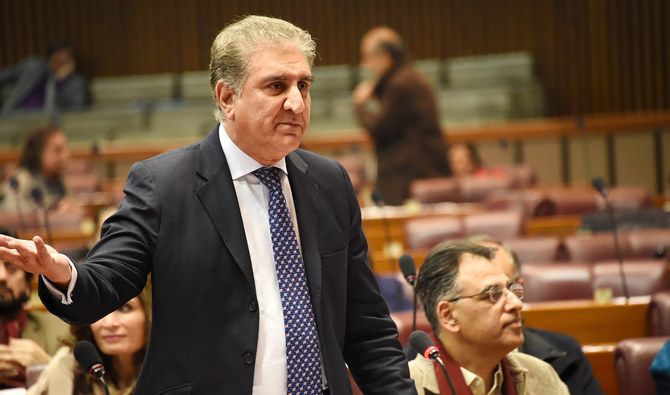ISLAMABAD: Pakistan’s Foreign Minister Shah Mahmood Qureshi urged the international community on Wednesday to condemn the “perpetrators of state terrorism” and hold them accountable in regions where people are spending their lives in illegal occupations.
According to an official handout circulated by the Ministry of Foreign Affairs in Islamabad, Qureshi made the statement while addressing a Shanghai Cooperation Organization (SCO) meeting that was convened by the Russian Federation in its capacity as the current SCO chair.
The meeting brought together foreign ministers of all member states through a video link along with the organization’s secretary general and the director of its anti-terrorist structure.
The foreign minister emphasized that tackling terrorism and extremism should continue to be a priority, but he added that terrorism related allegations should not be used as a political tool to malign and victimize any country or religion. He also stressed the importance of rejecting xenophobic ideologies including Islamophobia.
Discussing the coronavirus pandemic, Qureshi said it was “a litmus test for multilateralism,” adding that it posed a challenge of unprecedented scale that necessitated coordinated responses from the international community. He also maintained that the SCO was well placed to tackle the crisis.
The foreign minister also stressed the need for the SCO to reject stigmatization and discrimination of any community in the context of COVID-19 on the basis of race, religion or ethnicity.
“Highlighting the socio-economic repercussions of the health crisis, Foreign Minister Qureshi underscored the salience of Prime Minister Imran Khan’s ‘Global Initiative on Debt Relief’ for developing countries as a means to formulate a comprehensive multi-stakeholder plan of action to shore up economies and promote sustainable growth. He emphasized that SCO’s coordinated efforts in this context would be crucial,” read the handout.
Qureshi also welcomed the US-Taliban Peace Agreement and hoped that the Afghan leadership would seize the historic opportunity to work out a comprehensive and inclusive political settlement. He noted that the SCO, through its contact group on Afghanistan, could play a facilitative role at this juncture.
















